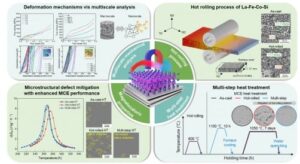
Flying birds silhouette collage element, animal illustration psd. Free public domain CC0 image. More: View public domain image source <a href="https://openclipart.org/detail/316326/bird-migration-silhouette" target="_blank">here</a>
Cyberwave, a startup focused on creating an operating layer that connects AI agents with physical machines, has successfully raised €7 million in funding. The round was led by United Ventures with participation from The TechShop, as well as seed funds Vento (part of Exor) and Pi Campus, along with several notable angel investors. This funding coincides with the planned launch of Cyberwave’s digital twins platform in October 2025 and will support the expansion of its developer ecosystem, while also validating early enterprise applications in sectors including manufacturing, logistics, and inspections.
Founded by seasoned entrepreneurs Simone Di Somma and Vittorio Banfi, Cyberwave aims to establish itself as a leader in Europe for AI-driven automation. The integration of AI into physical environments has historically been challenging, often due to the unique specifications and APIs associated with each robot, sensor, or actuator. The dominance of system integrators in the automation market has made these processes both costly and inflexible, a situation that is particularly pressing as Europe grapples with labor shortages and increasing demands for productivity and reindustrialization.
According to a report by McKinsey, nearly 30 percent of manufacturing tasks remain manual because of the complexities involved in integration. Meanwhile, Bain predicts a global shortage of 8 million manufacturing workers by 2030. Cyberwave addresses these challenges by developing programmable digital twins that allow developers to simulate, control, and orchestrate machines with minimal coding.
What sets Cyberwave apart from its competitors is its commitment to delivering a seamless developer experience, akin to how platforms like GitHub have enhanced collaboration. Di Somma, who serves as the company’s CEO, emphasizes that the goal is to bring the rapid pace of digital software development into the physical realm. “We want developers to treat machines the way they treat code—flexible, composable, and programmable,” he stated.
He further elaborated on the limitations of current systems, noting, “Real automation has so far eluded manufacturing. Today’s systems are rigid, over-engineered, and costly to reprogram, which is why 76 percent of mid-market manufacturers still struggle to adopt automation at scale.” Each adjustment often results in downtime and integration challenges, making the factories less adaptable.
The core of Cyberwave’s platform is a growing catalog of digital twins, which functions as a two-sided marketplace. Hardware manufacturers can integrate their devices once, making them readily accessible to developers. In return, developers benefit from plug-and-play access to a diverse library of robotic systems, ranging from industrial arms to drones and sensors. This versatility extends to various applications, including civilian and defense sectors. Use cases include defect rework on automated assembly lines, logistics packing optimization, drone inspections, and computer-vision systems that enhance cameras into intelligent sensors.
The platform’s capability to quickly reconfigure physical systems is particularly beneficial for the defense sector, which requires flexible and scalable production solutions. Massimiliano Magrini, founder and managing partner at United Ventures, remarked on the potential of Cyberwave, stating, “Simone and Vittorio combine technical excellence, product vision, and company-building experience. With Cyberwave, they are tackling AI and robotics with a developer-first approach, focused on making robots useful and easy to use.”
On a similar note, Aurelio Mezzotero, founder and managing partner at The Techshop, highlighted Cyberwave’s customer-centric engineering as a crucial element for transforming manual workflows into intelligent automation. He noted that simplifying integration is key to achieving true transformation, a philosophy that has propelled other companies like Salesforce and Workday to success.
Initially, Cyberwave is concentrating on Europe’s manufacturing powerhouses, with plans for expansion into the United States to support European manufacturers’ operations and leverage the North American reindustrialization trend. As the company progresses, it aims to redefine how machines and software interact, paving the way for more agile and efficient manufacturing processes.







